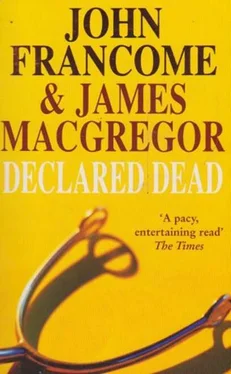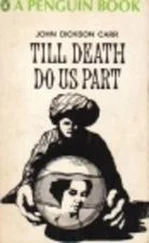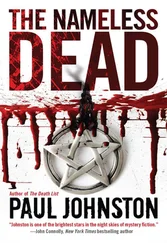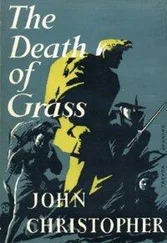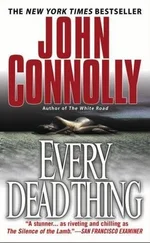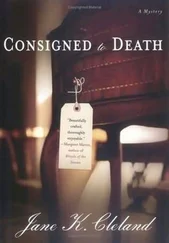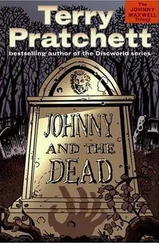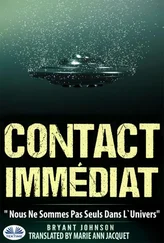couple of occasions, and both times I'd lost. He was in his late fifties, with grey hair and a moustache, and his face bore testimony to many years of exposure to the good life, and in particular to vintage port. Unfortunately he had once ridden the winner of a point-to-point, which in his mind had made him an authority on everything connected with racing. The fact was that he could have passed on his entire knowledge in under a minute and replayed it on his video, too. I did not recognise the third member of the triumvirate, who was considerably younger and gave me what I hoped was a sympathetic smile. The stipendiary steward, who was standing beside the table, was the first to speak:
'This is Pryde, the rider of Cartwheel, and this is Brennan, the rider of Pride of Limerick.' He then formally introduced the stewards to us. I could tell immediately from the acid expression on Drewe's bucolic face that the best I could hope for was a majority decision.
The Brigadier-General, as chief steward, began by asking each of us to give an account of what happened on the run-in. I went first, but was shaking so much that the words came out hesitantly and without conviction. Brennan, by contrast, had attended more enquiries than he had confessionals, and gave a virtuoso performance of a jockey wronged. He claimed that Cartwheel had crossed him on the run-in to such an extent that he had had to check and stop using his whip.
'I can honestly say, sir,' he concluded, 'that without that interference I would certainly have won.'
We then watched a re-run of the race on the video, both side and head on, and when that was over we were asked if we had anything further to say. Fortunately the head-on film had shown that Cartwheel was not the only culprit and I decided that I couldn't let Brennan's comments go unchallenged. Nothing personal, of course.
'Only this, sir. You'll see that although we did come together it wasn't all my fellow's fault. They were both very tired animals and…'
'And because of your failure to steer a straight line, Brennan was unable to use his whip.' Sir Arthur's interjection was as savage as it was demoralising. I so much wanted to answer back, but decided to keep my mouth shut. My only hope was that his fellow stewards disliked him as much as I did, and had taken a different view of the film.
The Brigadier-General told us to leave the room and wait outside while they reached their decision. Brennan was grinning away confidently and I waited for him to repeat the usual sentiment. I chose to ignore him and paced up and down the corridor, cursing myself for letting Cartwheel drift off a straight line and then for making such a fool of myself during the enquiry. How was I going to face Ralph and the owners and tell them that I'd blown it?
The wait seemed interminable, but in fact it was no more than five minutes before we were recalled. As we entered, the stewards' secretary rushed out holding a pink ticket in his hand with the announcement to be given to the operator of the tannoy system. It would either say that the placings remained unaltered or give the details of the corrected result. His stony face gave nothing away. It was left to the chief steward to deliver the verdict.
'Jockeys, we've looked at this film and heard what you both had to say.' He coughed and reached for a glass of water, at least I presumed it was water, in front of him. 'Get on with it,' I muttered impatiently under my breath.
'We have decided that there was interference,' – I swore to myself as he paused – 'but that in no way did it affect the result. The placings remain unaltered.'
I couldn't stop myself smiling and victory was made all the sweeter by the apoplectic look on Sir Arthur's face.
Outside, Ralph Elgar was waiting for me with a smile as big as Bechers. He had heard the result over the tannoy and for all his sixty years was in a state of uncontrolled boyish joy. It is every National Hunt trainer's dream to win the Gold Cup and he was certainly no exception. Although not one of the biggest or most fashionable trainers, he had sent out a steady stream of winners for the last thirty years and had the support of a devoted band of enthusiastic owners. What's more, he had given me a retainer when everyone in the racing world, from fellow trainers to racing tipsters to punters, had told him he was crazy. Now at last I had repaid that trust, although my shameful conduct over the past few months had far from merited his continuing support.
Seeing Ralph's excitement brought me back to reality. The original decision to pull the race had not been taken for fun. I had agreed to do it, just as I had those earlier races at Fontwell and Worcester, because at the time there had seemed no other option. At least, that's what I had told myself before each of those races, and how I consoled myself afterwards. The only trouble is that once you've sold your soul, you can't buy it back at any price. What I had achieved today was a part penance. The original instigator of my sin still remained and was likely to become even more demanding, if not threatening. I just had to hope that I could negotiate more time to think of a way out.
One thing at least was clear. I had to give up my retainer with Ralph. He had done so much for me and I couldn't go on cheating him. Today may have ended well, but I knew I couldn't give any guarantees as to my future conduct. I decided to tell him immediately after the presentation of the winning trophy, and I was still working out what to say when I was collared by a man from the BBC and asked to give an interview. It was the last thing I wanted to do but Ralph patted me on the back and pushed me forward:
'Go on with you. It's not every day you're a piece of history.'
Ten minutes later, having enthused about the race in front of the cameras, I made my way across the paddock towards the changing room. The area was almost deserted as the runners for the next race had already gone down to the start and would shortly be off. I was looking forward to changing out of my silks and having a few minutes to myself before meeting Ralph and the owners in their box for a victory drink. For once, I was glad that I didn't have a ride in the last two races.
I was so buried in my thoughts that I barely heard my name being called. I hesitated for a second and then turned round, just in time to catch the full force of a clenched fist in my mouth. I staggered back for a moment and then, as much from shock as from the blow itself, fell to the ground.
'I hope you're bloody satisfied!' screamed my attacker as he rushed away in the direction of the tented village.
Within seconds a crowd had formed and all I could see as I tried to focus was a muddle of faces peering inquisitively at me. No wonder babies scream so much. Soon a very kind St John's ambulance woman arrived and cradled my head while another went off for bandages and dressings. I told them that it was nothing and I was fine, but they were not going to miss this moment for anything. I looked up to see the anxious face of a uniformed policeman.
'I saw it, officer!' shrieked an hysterical middle-aged woman clutching a couple of tote tickets, and pointing in the direction of the tented village. 'He was in his early thirties, I'd say. He ran off in that direction.'
'Are you all right?' the policeman asked, ignoring her and kneeling beside me. 'Did you get a good sight of him?'
I shook my head. This time lying came easy. Of course I knew him. I'd recognise my husband anywhere.
Half an hour later I was on the road back home to Lambourn, leaving a bemused police officer and a posse of journalists behind me. The courts, or for that matter the front pages of the tabloids, were the last places I wanted to air my troubles. It wasn't the first time Edward had assaulted me, but it was certainly going to be the last. Now, looking back over the past few months, I still found it hard to believe that our marriage had deteriorated so dramatically. But there was no point pretending we could get back to normal after this.
Читать дальше
